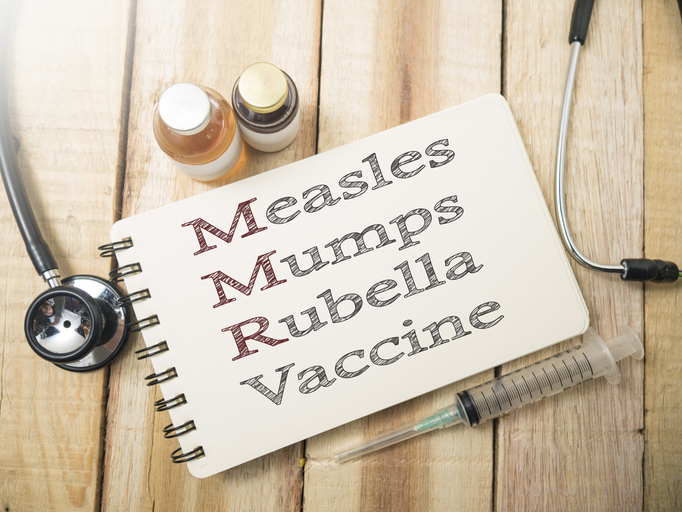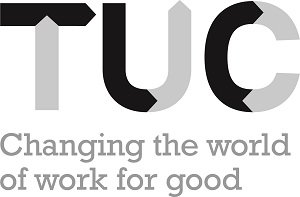What is MMR?
MMR is a combined vaccine for the three potentially highly harmful childhood diseases – measles, mumps, and rubella (also known as German measles).
It is given to children on the NHS in two doses: the first between the ages of 12 and 15 months and a second ‘booster’ dose, typically before a child goes to school between the ages of three and five years. All EU member states, the USA, Canada, Australia and New Zealand recommend a two dose strategy.
Like all vaccines, the MMR vaccine works by exposing the child to a controlled amount of the three viruses, which have been medically ‘attenuated’ to prevent their escalation. Exposure to the viruses triggers the production of antibodies, which neutralise their effect. The child’s immune system then ‘records’ details of the virus, enabling it to more effectively fight off the naturally occurring viruses in the future.

In recent years, public confidence in the MMR triple vaccine has been shaken by a series of medical studies and anecdotal evidence linking it to a number of serious medical conditions.
Background
MMR replaced the use of single vaccines for the three diseases in the UK in 1988.


Governments since then have argued that the triple vaccine more effectively protects children, as the single vaccines require six separate inoculations – increasing the risk that the full course is not completed.
Since its introduction, the MMR vaccine has been linked with diseases such as asthma, autism, Guillain Barre Syndrome, inflammatory bowel disease, mumps virus meningitis and subacute sclerosing panencephalitis.
The Government and medical authorities dismissed these links, but the parents of many autistic children believed that MMR triggered their child’s condition and public concern remained strong – evidenced in the decline in vaccination coverage from 92 per cent in 1995 to less than 80 per cent in 2003 (a figure closer to 60 per cent in some parts of London).
This decline followed the 1998 claims of the Inflammatory Bowel Disease (IBD) Study Group at the Royal Free Hospital (RFH), led by Andrew Wakefield, which suggested the possibility of a link between MMR, IBD and autism.
The 1998 study was published in ‘The Lancet’, arguing there was evidence to suggest a ‘new syndrome’ involving MMR, autism and bowel disorders arising in some children shortly after receiving the MMR vaccine. However, Dr Wakefield has since been accused of research misconduct, such as not disclosing payments he received from the Legal Aid Board, and The Lancet stated in February 2004 that this information “would have been material to our decision-making about the paper’s suitability, credibility, and validity for publication”.
In April 2000, another study by Dr Wakefield and Professor John O’Leary, Director of Pathology at Coombe Women’s Hospital in Dublin, presented evidence to the US Congress, claiming to show the measles virus in the guts of 24 out of 25 autistic children they had examined. In January 2001, Dr Wakefield alleged in an article in the journal ‘Adverse Drug Reactions and Toxicology Review’ that MMR had not undergone full safety assessments prior to licensing, and in February 2002, he and Professor O’Leary published another paper alleging a link in ‘Molecular Pathology’.
Dr Wakefield has since been struck off from the medical register having been found guilty of professional misconduct by the General Medical Council.
Controversies
Numerous British and international studies, in both the public and private sector, have refuted the alleged link between MMR, IBD and autism – and yet the public perception that MMR is somewhat unsafe persists.
Inoculation rates fell below 90 per cent in the late 1990s, creating a pressing public health problem, as the prevention of epidemics demands a very high rate of vaccination.
The Government frequently points to the decision in the 1970s to allow parents to opt out of the pertussis (whooping cough) vaccination following fears that it was causing brain damage: coverage fell from 80 per cent to 30 per cent, and three major epidemics followed, in which at least 100 children died.
The only major industrialised country that does not recommend MMR is Japan, which withdrew the vaccine in 1993. The strain of mumps used in its MMR combination (Urabe) was found to have caused some cases of mumps virus meningitis. The Urabe strain is not used in the UK’s MMR supply.
It has also been suggested that the combination of the three viruses in two doses is too great an attack for children’s immune systems to cope with – resulting in side-effects and complications. The Government and NHS deny that there is any medical support for this claim.
Nonetheless, many parents’ concerns have led them to seek single vaccines in preference to MMR. This raises problems, because no single vaccines for any of the three diseases are licensed for use on children in the UK. However, doctors and companies are able to import them under certain circumstances, causing considerable anger within the medical community.
In early 2002, it came to light that some children in Haringey were being removed from GPs’ lists because of their parents’ refusal to accept the MMR vaccine. This, along with popular concerns about MMR and the medical community’s insistence that there is nothing to worry about, have done little to improve public opinion about the vaccine. It was suggested that the refusal of government ministers, including former Prime Minister Tony Blair, to confirm or deny whether their children had received the MMR vaccine increased public alarm.
In February 2004, it emerged that Dr Andrew Wakefield had not disclosed payments of £55,000 he had received from the Legal Aid Board, prior to the publication of the 1998 Lancet study, to determine whether there was evidence to support action by parents claiming that MMR had harmed their children. The GMC began an inquiry in June 2007 into allegations of serious professional misconduct by Dr Wakefield and two of his colleagues.
The Chief Medical Officer, concerned about a possible measles epidemic, wrote to all Primary Care Trusts in August 2008, asking them to offer the MMR vaccine to every child up to the age of 18 who had not been vaccinated and to urge parents to have their children immunised. The Department of Health announced that it would make extra vaccine and funds available to help local health trusts with a vaccination campaign.
In January 2010 the General Medical Council found that Dr Wakefield had acted unethically and in May of that year ruled that he should be struck from the medical register having found him guilty of professional misconduct.
Further concerns were raised about the MMR vaccine in August 2010 when a £90,000 compensation payment was made to the mother of 18 year old Robert Fletcher who suffered an epileptic fit and severe brain damage after being given the vaccine when he was 13 months old.
Robert’s family had originally applied for compensation under the Government’s Vaccine Damage Payment Scheme but their claim was rejected in 1997. They appealed and in 2010 a new panel of experts upheld their claim, finding that Robert had been left severely disabled as a result of the vaccination.
However, Robert is not autistic so this case does not have a bearing on the question of whether there is a connection between autism and MMR.
Controversy about the triple vaccination made headlines again in August 2012 when the Advertising Standards Authority ordered BabyJabs Ltd of Wimpole Street, London, to remove from its website information relating to an alleged link between MMR and autism.
The ASA upheld a complaint about three claims made about MMR: –
1) “The [MMR] vaccine could be causing autism in up to 10% of autistic children in the UK – between 300 and 400 children a year”.
2) “Most experts now agree that the large rise [in autism] has been caused partly by increased diagnosis, but also by a real increase in the number of children with autism”.
3) “The vaccine strain measles virus has been found in the guts – and brains – of some autistic children; this supports many parents’ belief that the MMR vaccine has caused autism in their children”.
The ASA ruled that all three claims were “misleading”.
Following the ruling, BabyJabs conceded on its website that : “The medical authorities strongly refute any link between the MMR vaccine and autism.” However, the company also added: “We note that an Italian Court, based on independent medical advice, ruled in March 2012 that the MMR vaccine had caused autism in a 9 year old boy,” thereby continuing the controversy.
Quotes
“MMR is the combined vaccine that protects against measles, mumps and rubella. Since the vaccine was introduced in 1988, the number of children who develop these conditions has fallen to an all-time low. Single vaccines are not routinely given in the UK. They’re not available on the NHS due to the risk that fewer children would receive all the necessary injections, increasing the levels of measles, mumps and rubella in the UK.” – NHS Choices – 2012


